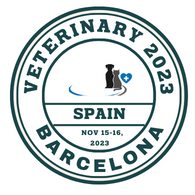Internal Medicine
Internal Medicine or Internists specialists, apply knowledge and clinical expertise to the diagnosis and treatment of various conditions affecting vital organs, including diseases of the respiratory system, digestive system, liver and pancreas, endocrine system, urinary system, and immune system as well as infectious diseases, among many others. Internal medicine veterinarians can further specialize in the following:
• Cardiology
• Large animal internal medicine
• Neurology
• Oncology
• Small animal internal medicine
Internal Medicine in veterinary practice refers to the specialized field that deals with diagnosing and treating complex medical conditions affecting animals. Veterinarians who specialize in internal medicine, known as veterinary internists, undergo extensive training to address a wide range of diseases and disorders that can affect an animal's internal organs, systems, and overall health. Here's a comprehensive overview of Internal Medicine in veterinary practice: The Role of Veterinary Internists: Veterinary internists are specialists who provide in-depth medical expertise and advanced diagnostics for animals with complex or chronic health issues. They focus on diseases of internal organs, metabolic disorders, infectious diseases, and immune-related conditions.
Related Conference of Internal Medicine
Internal Medicine Conference Speakers
Recommended Sessions
- Animal Structure & Function
- Animal Vaccines
- Emergency and Critical Care
- Internal Medicine
- Anesthesia and Analgesia
- Animal Dermatology
- Animal Genetics
- Animal Microbiology
- Animal Physiology
- Animal Reproduction
- Animal Welfare
- Behavioral Medicine
- Clinical Pharmacology
- Environmental Threats
- Human-Animal Bond
- Layer Poultry Farming
- Small Animal Medicine and Surgery
- Veterinary and Animal Science
- Veterinary and Social Science Research
- Veterinary Dentistry
- Veterinary Parasitology
- Veterinary Telemedicine
- Wildlife and Ecosystem Health
- Zoonotic & Infectious Diseases
Related Journals
Are you interested in
- Animal Nutrition & Welfare - Veterinary Summit 2026 (Japan)
- Animal Nutrition, Welfare & Ethics - Veterinary Summit 2026 (Japan)
- Antimicrobial Resistance & Global Biosecurity - Veterinary Summit 2026 (Japan)
- Companion Animal Medicine & Surgery - Veterinary Summit 2026 (Japan)
- Livestock Health & Production Management - Veterinary Summit 2026 (Japan)
- Veterinary Biotechnology & AI in Animal Health - Veterinary Summit 2026 (Japan)
- Wildlife, Aquatic & Exotic Animal Medicine - Veterinary Summit 2026 (Japan)
- Young Researchers & Innovation Forum - Veterinary Summit 2026 (Japan)
- Young Veterinarians & Research Innovation Forum - Veterinary Summit 2026 (Japan)
- Zoonotic Diseases & One Health - Veterinary Summit 2026 (Japan)

